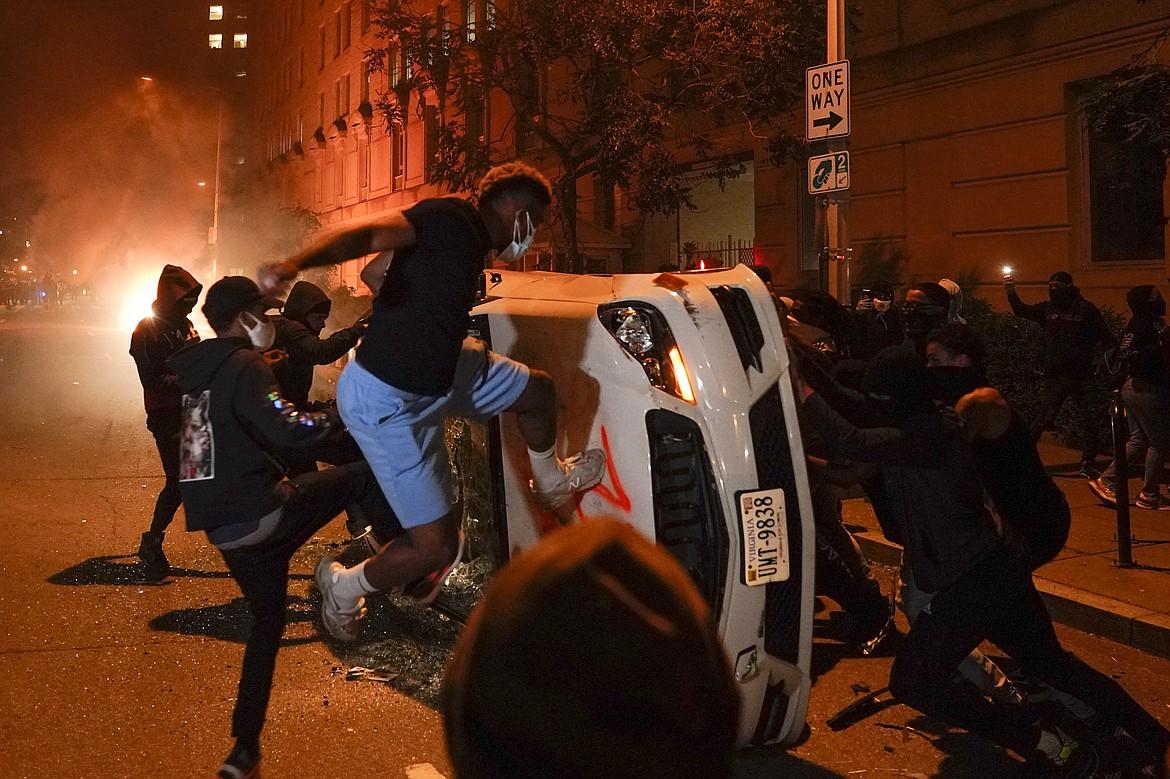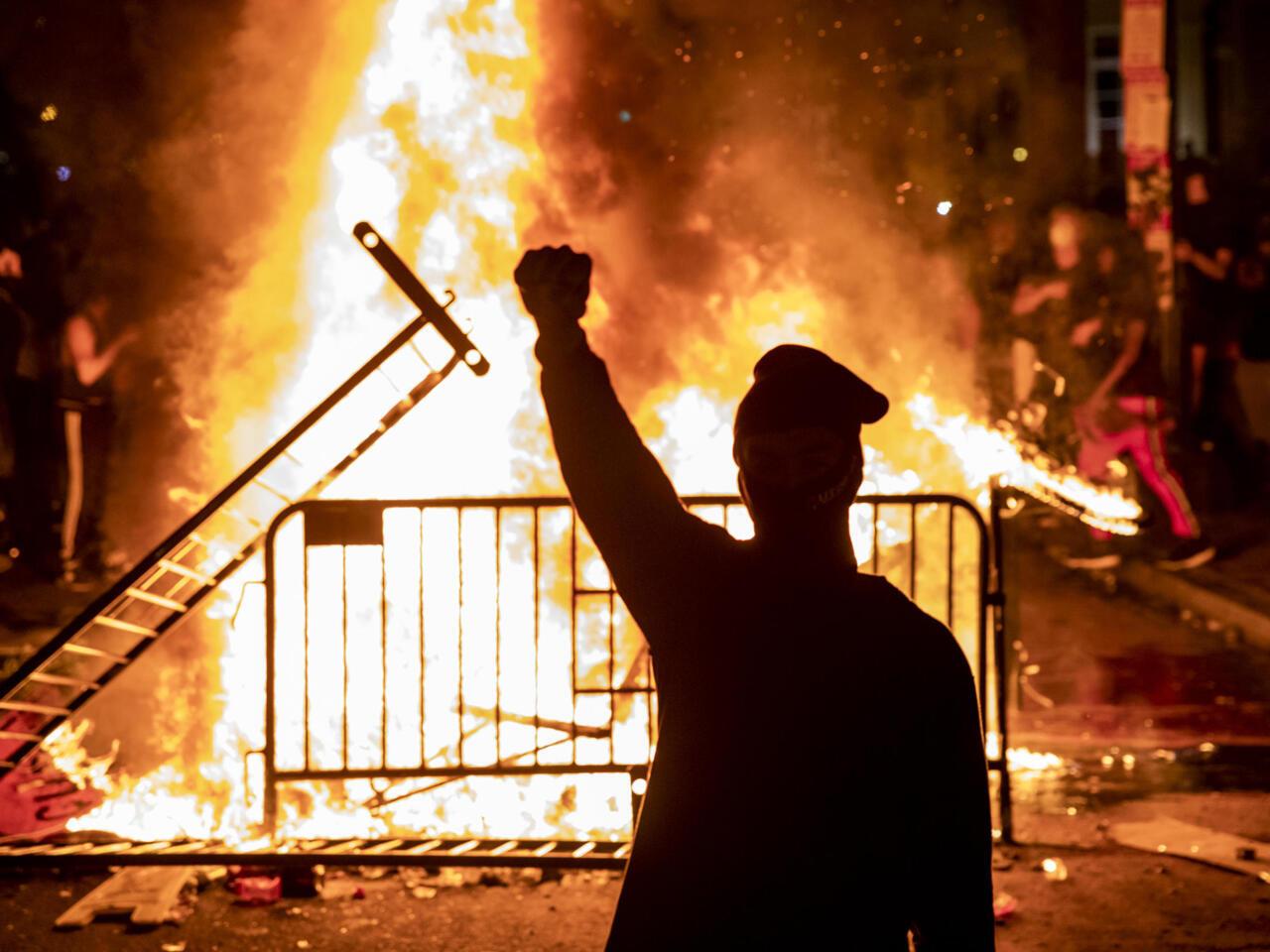In times of civil unrest, when protests and demonstrations evolve into riots and looting, the question arises as to what the consequences should be for those involved in such activities. One of the suggestions that has emerged in the debate is whether individuals arrested for rioting and looting should automatically lose their government assistance. This idea, which ties criminal behavior to financial penalties, raises important legal, ethical, and societal questions.

On the one hand, proponents of this policy argue that government assistance is meant to support individuals who are actively contributing to society, not those who are engaging in violent or destructive acts. From this perspective, rioters and looters are undermining social order, and by committing crimes, they are forgoing their right to certain benefits. Government assistance, such as welfare, unemployment benefits, or housing support, is typically designed to provide a safety net for people who are struggling, not for those who are actively breaking the law and contributing to social harm. By linking government aid to behavior, proponents argue, society would send a strong message about the consequences of illegal actions, reinforcing the importance of law and order.

Moreover, the concept of “personal responsibility” is often cited as an underlying principle of such proposals. If individuals are receiving financial support from the government, they should, in theory, demonstrate responsible behavior. Rioting and looting are not only illegal but also harmful to the fabric of society. In this view, losing government assistance would act as a natural consequence for those whose actions disrupt the community. It could be argued that this would help deter future criminal behavior, as the threat of losing vital financial support might make some think twice before engaging in such actions.
However, there are significant counterarguments to this stance. First, many believe that automatically revoking government assistance based on an arrest would be both unjust and counterproductive. For one, an arrest does not necessarily equate to guilt. In a system based on due process, individuals are presumed innocent until proven guilty. The suggestion that individuals arrested for rioting or looting should automatically lose their benefits disregards this fundamental legal principle. Such a policy would essentially punish individuals before they have had their day in court, which is a violation of their rights to a fair trial.
Furthermore, even if a person is convicted of rioting or looting, the impact of stripping them of government assistance could be disproportionately harsh. Many individuals who participate in protests or riots do so out of a sense of frustration or anger regarding systemic issues, such as racial inequality, police brutality, or economic hardship. While their actions may be inexcusable, removing their ability to access essential services like healthcare, food assistance, or housing could push them further into poverty and desperation, exacerbating the very social issues that led to the unrest in the first place. This could create a cycle of hardship that makes it even harder for individuals to reintegrate into society after serving their sentence.
Additionally, some critics argue that such a policy would disproportionately affect vulnerable populations, particularly those who rely on government assistance to meet basic needs. People in lower-income communities are often the most dependent on government support, and they may be the most likely to participate in protests, especially when they feel their voices are not being heard through traditional political channels. Penalizing them by stripping away their assistance could only further entrench poverty and social marginalization, fueling resentment and division rather than fostering rehabilitation or reconciliation.
Another critical concern is the potential for racial and socioeconomic bias in the enforcement of such a policy. Historically, people from marginalized communities, particularly Black and Latino individuals, have been disproportionately arrested and incarcerated. If government assistance were automatically revoked upon arrest for rioting or looting, it is likely that these communities would bear the brunt of such a policy, further entrenching inequality and perpetuating systemic injustice. Such a policy could be seen as another form of social control that disproportionately affects those who are already disenfranchised.
In conclusion, while the idea of automatically removing government assistance from those arrested for rioting and looting may seem like a way to uphold law and order, it overlooks important legal principles, including due process, and could have harmful social and economic consequences. Rather than punishing individuals before they have been convicted, a more constructive approach would involve addressing the underlying issues that lead to unrest and creating opportunities for rehabilitation and reintegration into society. Government assistance should be viewed as a tool for helping individuals rebuild their lives, not as a punishment for mistakes made in moments of frustration or anger. Only by fostering understanding, empathy, and a fair legal system can we hope to build a society where both justice and compassion prevail.






